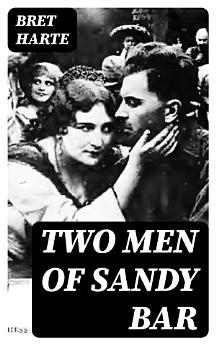Two Men of Sandy Bar: A Drama
Bret Harte
Sep 2022 · DigiCat
Ebook
86
Pages
family_home
Eligible
info
reportRatings and reviews aren’t verified Learn More
About this ebook
In "Two Men of Sandy Bar," Bret Harte masterfully captures the rugged essence of the American West during the Gold Rush era. This novella, characterized by its vivid imagery and sharp dialogue, employs realism to portray the complex interactions and moral dilemmas faced by its characters. The narrative centers around the contrasting lives of two miners—one privileged, the other a hard-scrabble laborer—illuminating themes of class, friendship, and the inherent conflicts born of ambition and survival in a frontier community. Harte's linguistic flair is evident in his use of regional vernacular, further immersing readers in the setting and culture of 19th-century California. Bret Harte, an influential figure in American literature, was deeply shaped by his experiences during the California Gold Rush. His firsthand exposure to both the promise and peril of this period informs his exploration of human relationships under the pressures of economic hardship. This background, along with his keen observations of frontier life, lent authenticity and depth to his storytelling, establishing him as a pioneer in the portrayal of western themes in literature. "Two Men of Sandy Bar" is a compelling read for those interested in the interplay of human emotion and societal structure in frontier America. Harte's nuanced characters and ethically charged scenarios invite reflection on human nature and resilience. This novella is not merely a tale of adventure but a profound commentary on the choices that define us, making it a must-read for enthusiasts of American historical fiction.
About the author
Bret Harte (1836–1902) was an American short story writer and poet, best known for his vivid depictions of the characters and lifestyles in the California Gold Rush. Often considered a pioneer in the development of the local color narrative, Harte's work championed both humor and pathos, capturing the paradoxes of frontier life. Born in Albany, New York, Harte moved to California in his early adulthood, where he worked in a variety of professions before achieving literary fame. His stories and poems were steeped in the dialects and scenery of the American West, earning him an esteemed place among the regionalist writers of his time. 'Two Men of Sandy Bar', a play later adapted into a novel, showcases Harte's talent for dialogue and his nuanced understanding of human relationships, underlined by a recurring fascination with themes of loyalty, betrayal, and redemption. Harte's literary style, characterized by a blend of romanticism and realism, satirical wit, and a keen observation of human nature, has been influential in shaping perceptions of Western American life. His work is an essential component of American literary heritage, offering insights and entertainment that continue to resonate with readers and scholars alike.
Rate this ebook
Tell us what you think.
Reading information
Smartphones and tablets
Install the Google Play Books app for Android and iPad/iPhone. It syncs automatically with your account and allows you to read online or offline wherever you are.
Laptops and computers
You can listen to audiobooks purchased on Google Play using your computer's web browser.
eReaders and other devices
To read on e-ink devices like Kobo eReaders, you'll need to download a file and transfer it to your device. Follow the detailed Help Center instructions to transfer the files to supported eReaders.







